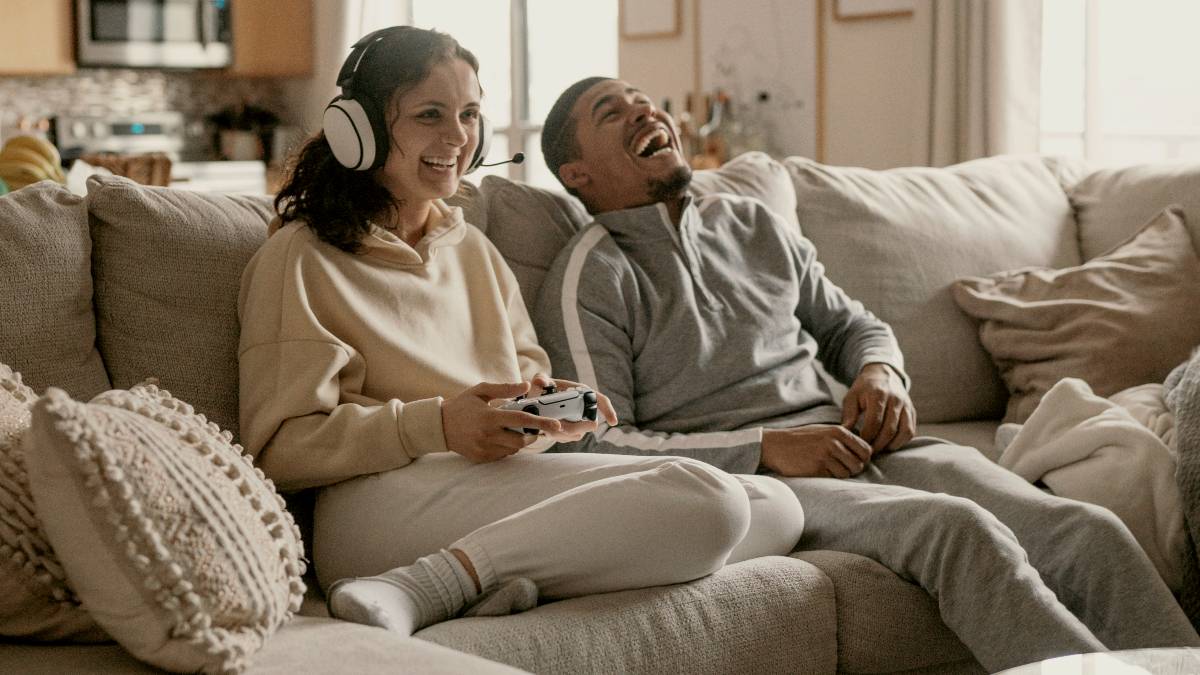
4 Ways To 'Gamify' Your Goals For Greater Success
Struggling to keep up with your goals and resolutions? The trick lies in turning them into a game. Here's how to do it.

By Mark Travers, Ph.D. | January 14, 2025
Motivation can be fleeting. How often do you feel motivated to go to the gym on a Monday, only to fall back into old routines by Friday? When you rely on motivation alone, showing up daily for your goals can be challenging.
Gameplay does not need motivation—it is something most people want to do naturally. That is the magic of gamification. It involves weaving game elements—like challenges and rewards—into everyday life. It's about using game mechanics and a playful mindset to tackle problems.
Gamification is not about turning life into a constant competition. Instead, it makes your goals more engaging and sets you up for success. Implementing these strategies makes you more likely to complete tasks and have fun along the way.
By gamifying your life, you're reminded that you're the protagonist of your own life. Each goal is a quest, and each challenge is an opportunity to level up. The rewards? Personal growth, increased motivation and the pure joy of continuous improvement.
Here are four ways you can gamify your life to make progress on your goals.
1. Set Goal 'Levels' With Exciting Rewards
Rewards make games fun, whether you're playing Super Mario or World of Warcraft. Nothing beats the adrenaline of "leveling up" when playing your favorite game. Adapting this gaming element to your goals could make you more likely to achieve them.
A 2019 study published in Compensation & Benefits Review found that workers offered rewards during their employment had greater job satisfaction and were likelier to perform better. Incentives motivate workers and create a sense of appreciation and feeling valued.
Take learning a new language, for instance. The task can feel overwhelming, especially when you're struggling with grammar rules or building your vocabulary. Motivation might wane if fluency feels like a distant dream.
By setting milestones and attaching rewards to them, you can make the process more enjoyable. You could treat yourself to a meal at your favorite restaurant after completing 10 lessons. Or, after mastering a challenging grammar concept, reward yourself with a small gift or a fun outing. Such rewards help you savor the journey instead of just focusing on making it to the finish line.
2. Welcome Some Friendly Competition
Most people view competition negatively, and some try to avoid it altogether. However, competition can be a powerful motivational tool when used wisely.
A 2015 study published in Frontiers in Psychology suggests that having a competitor can significantly boost the effort and attention given to a task. While it's true that your biggest competitor is often yourself, introducing some friendly rivalry with those in your inner circle can be a game-changer. This competition pushes you to step up your game and keeps you accountable.
Trying to save money? Turn it into a fun competition with a friend or family member on the same mission. The stakes do not have to be huge—the rules are simple: set a deadline, and whoever doesn't hit their savings goal owes the other a small prize. These fun little competitions will make seemingly mundane tasks feel like you're winning your favorite video game.
3. Collect Achievements Like Badges Of Honor
Remember how satisfying it was to collect stickers or Pokémon cards as a kid? Every time you added to your collection, you likely felt a tremendous sense of accomplishment.
Collecting badges for your goals works on the same principle. Research shows that such visual representations of achievement can improve mental engagement and task performance. The trick is creating a meaningful visual symbol to reward yourself, like unlocking a rare item in a video game.
It could be something small but special, like a badge, sticker or customized trophy representing your progress. These tangible rewards make your achievements feel real and motivate you as you work toward your next badge. Over time, they become a collection of milestones that remind you of how far you've come.
4. Rely On Your 'Team'
Humans are naturally social—we are wired to crave connection and thrive on interaction. Even if your goals are personal, achieving them does not have to be a solo mission. Just as tackling a game adventure with friends makes the journey more fun, teaming up can make your path to real-life success less overwhelming.
The communities we build are pivotal in shaping our success—they can either uplift us or hold us back. Surrounding yourself with the right people can inspire you to push beyond your limits and achieve more than you ever thought possible.
For instance, if you're looking to exercise more, why not join a group sport? Finding a supportive community to share your journey can make all the difference, helping you stay committed and go the distance.
In the end, motivation does not always happen to you—it's something you actively create. Gamification provides a framework to make this creation process more intuitive, enjoyable and effective.
Do you often procrastinate on your goals? Take this science-backed test to find out: General Procrastination Scale
A similar version of this article can also be found on Forbes.com, here.
